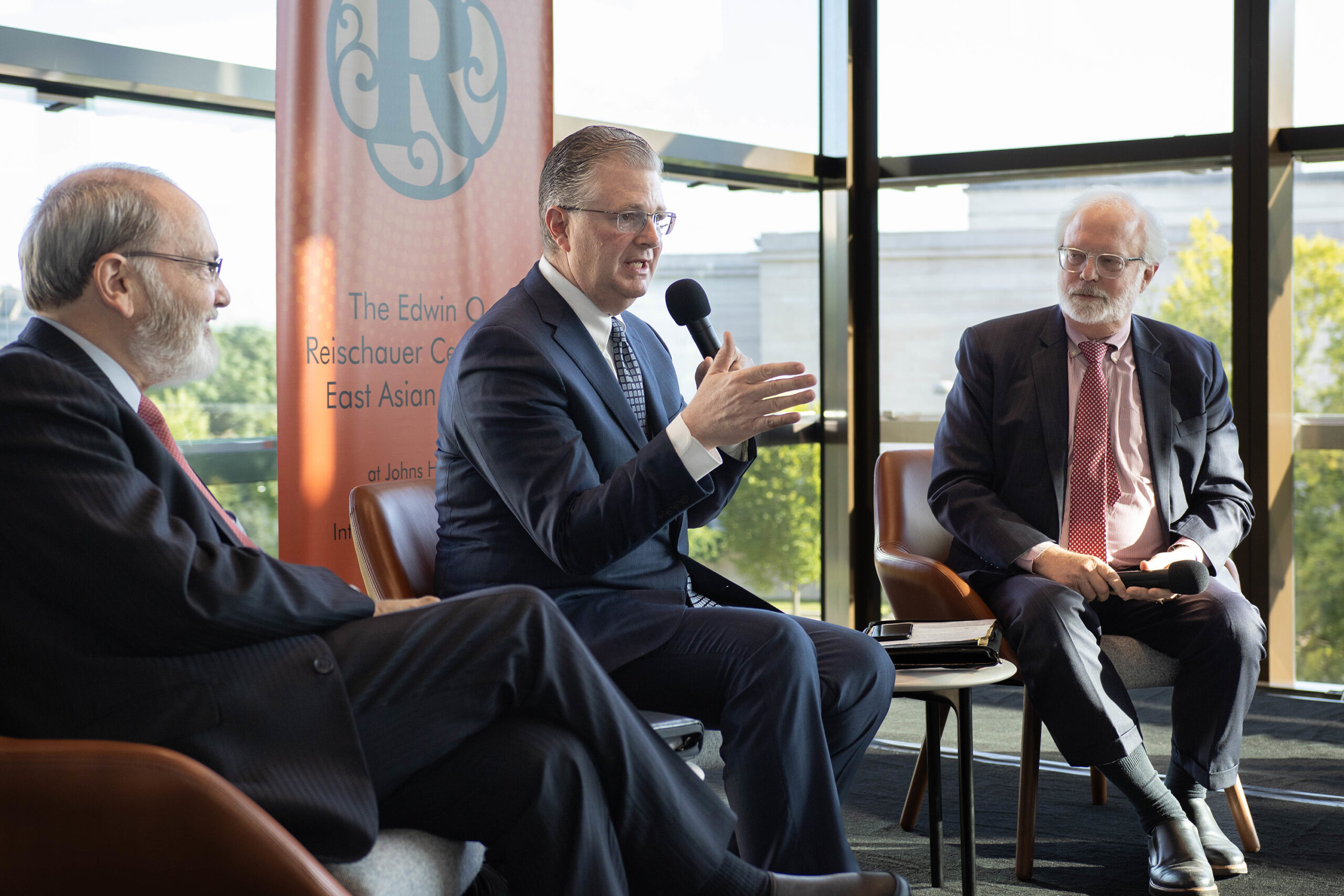Three observations about the strategic importance of the Indo-Pacific
Daniel Kritenbrink, U.S. assistant secretary of state for East Asian and Pacific Affairs, discusses the future of the region

Americans often immediately jump to China when they think of the U.S.-East Asia relationship. But Daniel Kritenbrink, assistant secretary of state for East Asian and Pacific Affairs, thinks a broader perspective is necessary.
“If any of you were to come visit my office, you would see a massive map of the Indo-Pacific on my wall. I spend the majority of my time looking at that map and thinking about our engagements with all of our allies and partners,” he said. “If we want to get our approach to China right, we have to get our approach to the region right.”
Kritenbrink’s comments came at a recent lecture held at the Johns Hopkins University Bloomberg Center. The event was organized by the Edwin O. Reischauer Center for East Asian Studies at the Johns Hopkins School of Advanced International Studies.
Here are three things Kritenbrink shared about the region:
- America’s future is tied to the Indo-Pacific region.
Kritenbrink said that developing and maintaining strong relationships with Indo-Pacific nations is critical for America’s economy and national security. The region is home to half the world’s population, 60% of the world’s economy, and two-thirds of global economic growth over the past five years. The area also has seven of the world’s largest militaries and five American treaty allies.
Building out relationships with allies in the region, he said, will help counter China’s influence. The administration is working to develop economies in the region through trade partnerships and make the region more “interconnected” through multilateral treaty alliances.
The U.S. can use “those partnerships to collectively invest in the rules-based international order, to support security, peace, prosperity and stability” to develop a position of confidence with China.
“We have a regional strategy of which China is a part, and not the other way around,” he said.
- He’s spent more time than expected on European security issues.
With China’s aggressive support for Russian’s invasion of Ukraine, “there’s an increasing recognition of the indivisibility of security globally, and certainly between Europe and Asia,” Kritenbrink said.
He added that he’s been “gratified” to see European partners increase their investment in the Indo-Pacific and their focus on the region.
- The détente between Japan and Korea could be transformative.
Relations between Japan and Korea have been strained since the early 20th century. Japan colonized South Korea from 1910 and 1945 and abducted thousands of so-called Korean “comfort women” and forced them into sexual slavery during World War II.
Recently, the relationship between the two countries has begun to thaw, culminating in a trilateral meeting between U.S. President Joe Biden, Japan’s Prime Minister Fumio Kishida, and South Korea’s President Yoon Suk Yeol in August 2023.
Kritenbrink called the development “stunning” and added “it’s in our collective interest to make sure that it endures.”